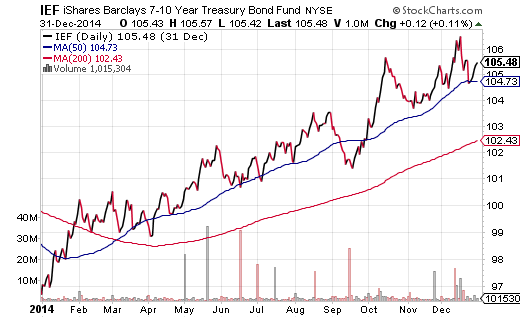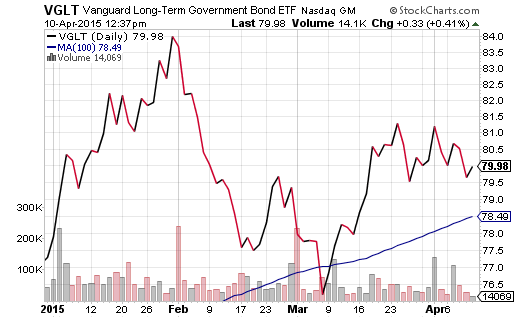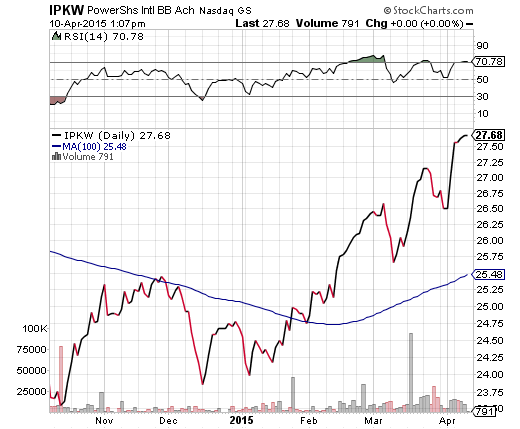The former chairmen of the Federal Reserve, Ben Bernanke, acknowledged his belief that the Fed will not normalize overnight lending rates in his lifetime. Yet Mr. Bernanke neglected to share his contribution to the dilemma by agreeing to acquire trillions of dollars’ worth of treasuries with electronic money during his tenure. The quantitative easing (QE) programs that he championed fostered extreme levels of corporate indebtedness and created an ultra-low rate environment where the federal government would be able to service the interest payments on $18 trillion in treasury obligations.
Perhaps ironically, Bernanke has not addressed the real reason that the U.S. will never see normal rates again. Specifically, any sharp rise in borrowing costs would severely strain the U.S. budget. Higher rates would mean that significantly more of the federal tax revenue would need to be allocated to debt servicing; more desirable government spending (e.g., defense, health care, infrastructure, etc.) would be cut in order to pay for burdensome interest outlays.
The good news (at least on a relative basis)? The U.S. has journeyed a mere six-plus years into its ultra-low rate quagmire. In contrast, Japan has toiled for more than 20 years. Since Japan first began QE 15 years ago, its central bank has been unable to get its overnight lending rate above 0.5%.
Regardless of what one feels with respect to what the U.S. federal government should be spending its tax revenue on, higher interest rates on an ever-rising national debt pushes up interest expense such that less and less of a country’s budget can be used for key government programs. Want to spend on transportation, social security, unemployment, health, housing, education, a military? Then borrowing costs (a.k.a. interest rates) cannot move appreciably higher.
Remember when the 10-Year yield on the U.S. Treasury Note hit 3.01% at the end of 2013? In spite of universal agreement by every reputable economist polled by Bloomberg that interest rates would move higher by the end of 2014 (average forecast 3.41%), I argued that the 10-year would have to fall. I spent the bulk of 2014 expressing the reality of debt servicing as well as relative value of Treasuries with comparable foreign sovereign debt. Sure enough, funds like iShares 7-10 Year Treasury (ARCA:IEF) profited immensely when yields on the 10-year fell to 2.25% by late December of 2014.

The same group-think that fooled economists in 2014 appears to have fooled them again on their 2015 forecasts. The universal prognostication? Intermediate-term borrowing costs would rise such that the 10-year would move form roughly 2.25% up to 2.75%. I argued the contrarian point of view that the tortoise-like pace and tiny magnitude of any Fed-inspired changes to rates would do nothing to alter the flattening of the yield curve. And, in fact, intermediate- and longer-term treasury yields continue to fall. The price movement has been volatile, though Vanguard Long-Term Government Bond (NASDAQ:VGLT) demonstrates an undeniable uptrend.

Of course, the implications of lowering borrowing costs for the government also extend to lowering borrowing costs for corporations. Although the Federal Reserve hoped that corporations would spend their borrowed dollars on new equipment, human resources, R&D and new products, the majority of those dollars rolled into stock share buybacks. Indeed, share buybacks have played a pivotal role in the current bull market, now in its seventh year.
There are at least three concerns that come to mind about companies that buy back their own shares. First, whether one looks at prices alone or price-tags via P/E and P/S ratios, buybacks have become insanely expensive. Looked at another way, the higher the share price, the more money a corporation is shelling out to acquire the same stuff as they had in earlier years. Literally and figuratively, today’s corporation is getting less bang for its buyback buck.
Second, while overnight lending rates may not affect the longer-term flattening of the yield curve (10s, 15s, 20s), a Fed that looks to maintain credibility may incrementally raise the target at the shortest end of the curve. Borrowers at the 1, 3, and 5 year level may not be as keen to do so, leading the possibility of a slowdown in buyback activity. Such a slowdown could have an over-sized effect on broader equities, creating greater selling pressure than many may be ready for.
Finally, buybacks tend to top out at the worst possible times. The belief that companies know when to buy their stocks low and when to sell them high is erroneous; history suggests the opposite. Buybacks tend to peak when stocks are just about finished reaching for the stars. (Note: Record level of stock buybacks have been reported for Q1 2015.)
Those who may believe that domestic buyback trend will continue unabated, PowerShares Buyback Achievers (NYSE:PKW) proved its mettle in the current bull market. In truth, PKW has actually outperformed the S&P 500 SPDR Trust ETF (ARCA:SPY) over the last five years, 134% to 95%. Still, it might make sense to shift international; that is, foreign corporations are now getting the QE-inspired ultra-low rates from both the European Central Bank (ECB) and the Bank of Japan (BOJ). Low volume notwithstanding, PowerShares International Buyback Achievers (NYSE:IPKW) has been showing similar out-performance trends relative to comparable benchmarks; IPKW has gained more than proxies like the iShares MSCI EAFE Index (ARCA:EFA) over the las six months.

Disclosure: Gary Gordon, MS, CFP is the president of Pacific Park Financial, Inc., a Registered Investment Adviser with the SEC. Gary Gordon, Pacific Park Financial, Inc, and/or its clients may hold positions in the ETFs, mutual funds, and/or any investment asset mentioned above. The commentary does not constitute individualized investment advice. The opinions offered herein are not personalized recommendations to buy, sell or hold securities. At times, issuers of exchange-traded products compensate Pacific Park Financial, Inc. or its subsidiaries for advertising at the ETF Expert web site. ETF Expert content is created independently of any advertising relationships.
